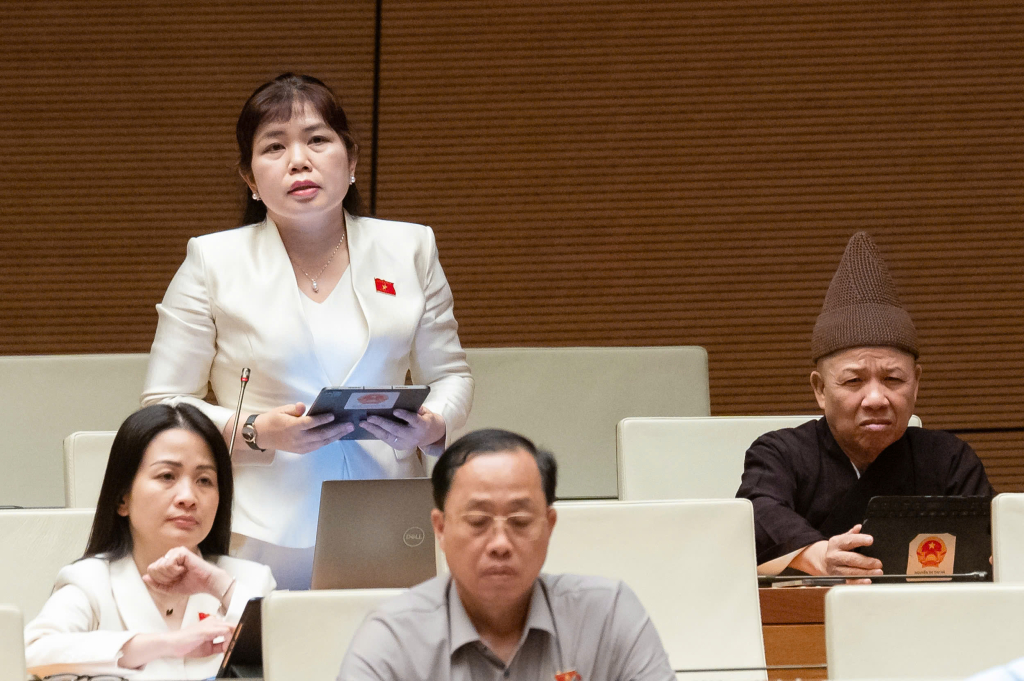
Participating in the discussion, many National Assembly deputies basically agreed with the Government's Submission and the review report of the National Assembly's Economic and Financial Committee on the necessity of comprehensively amending the draft Budget Law to properly and promptly institutionalize the Party's Resolutions and the Politburo 's Conclusions on improving the efficiency of State budget management and use, and rationally allocating resources; in line with the current context when synchronously implementing the rearrangement of the apparatus, administrative boundaries, and salary reform, in line with the breakthrough period, striving to develop the economy, meeting the target of double-digit growth.
Delegate Nguyen Thi Thu Ha, Deputy Head of the Provincial Delegation of National Assembly Deputies, proposed that in Clause 1, Article 35 of the draft Law, which stipulates that central budget revenue sources enjoy 100%, there should be regulations on bonuses for excess revenue for localities with border gates. The delegate said that this source of funding will support localities to reinvest, upgrade, and build smart border gates...
Agreeing with the viewpoint of strengthening the leading role of the central budget, the delegate suggested considering and calculating the budget division to create conditions for local development, in which it must be divided, avoiding a locality that is self-balancing its budget, having to depend on the central government. The delegate analyzed that according to option 1, clause 2, article 35 of the draft, if applied, in Quang Ninh province: Special consumption tax revenue will decrease by 71 billion VND; Environmental protection tax will decrease by 427 billion VND; Value added tax will decrease by 2,050 billion VND; Land use fees, land rent, for localities that do not receive additional central budget balance 30% - local 70%: Land use fees and land rent will decrease by 2,000 billion VND. With the adjustment rate according to the draft, the total local budget revenue of Quang Ninh province decreased by 3,289 billion VND plus the estimated local budget expenditure, in essence, in 2025, the estimated local budget of Quang Ninh province was unbalanced by nearly 4,300 billion VND.
Delegates proposed some contents in Article 35 on central budget revenue, revenue items divided into percentages between the central budget and local budget. Accordingly, at Point c, Clause 2, Article 35 (option 1), the draft Law stipulates: Regarding environmental protection tax (EPT), according to current regulations, EPT is divided on domestically produced goods (EPT on imported goods is 100% enjoyed by the central government). According to the draft Law, the entire EPT is divided (regardless of the origin of goods), and localities agree on this principle. However, the current draft stipulates that localities only enjoy 20% of the total EPT, which is low, not ensuring the principle of collecting EPT to create revenue for activities to reduce environmental pollution caused in areas where production and consumption of goods are carried out (for example, coal, electricity industries, etc.). Delegates proposed to study increasing the local budget rate for environmental protection tax in the direction of 50% central budget - 50% local budget.
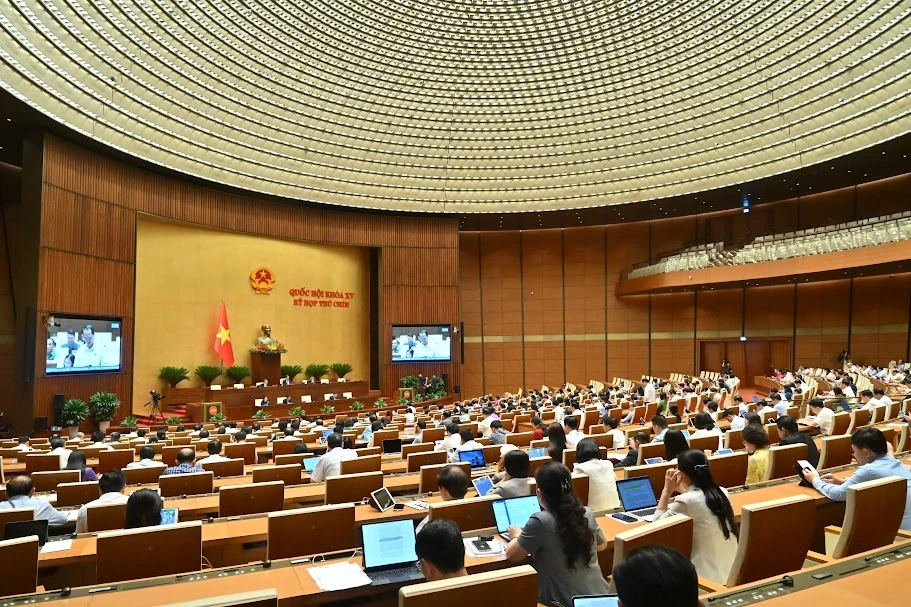
At Point d, Clause 2, Article 35 of the draft Law stipulates: “Value added tax (excluding VAT refunds as prescribed by the Law on Value Added Tax) is divided: The central budget enjoys 70%, local budgets enjoy 30%. The division for each locality is based on principles and criteria in each period decided by the National Assembly Standing Committee”, this provision will create conditions for the central government to proactively coordinate revenue sources between the central budget and local budgets. Therefore, delegates proposed to study and amend specific regulations on principles and criteria for dividing VAT revenue right in the Law, ensuring harmony and not causing major fluctuations in the balance of local budgets.
Clear and transparent regulations will help localities take the initiative in balancing revenue sources and determining expenditure tasks; at the same time, ensuring stability in annual and medium-term budget management. In particular, for localities with large VAT revenues (such as Quang Ninh province, in 2025, the Central Government estimates 21,687 billion VND, equivalent to 40% of total state budget revenue in the area), early determination of specific allocation ratios is an important basis for building appropriate financial plans, effectively promoting resources and promoting socio-economic development in the locality (only adjusting at the end of the budget stabilization period when there are major fluctuations).
At point d, clause 2, Article 35, regarding land use fee and land rent collection, according to the draft: Localities that do not receive additional balance must regulate 30% to the central budget, local budgets enjoy 70%. The delegate clearly stated that the actual scale of land use fee and land rent collection in the locality depends largely on the level of socio-economic development, the capacity to organize the implementation of state regulations on economic and land management, and the ability to attract investment of each locality. At the same time, to maintain the competitive advantage of the locality (not only compared to other localities in the country but also compared to tourism, trade, and investment destinations in the region and the world), this source of revenue must be used to reinvest in infrastructure development, thereby promoting economic growth of both the locality and the economic region.
Therefore, delegates suggested considering the proposal to increase the ratio of land use fee and land rent revenue to localities, especially for localities where land revenue accounts for a large proportion of total domestic revenue to avoid sudden impacts on the balance of local budgets after the new State Budget Law takes effect, creating motivation for localities to exploit land resources sustainably.
In addition, it is necessary to clarify the basis and basis for Quang Ninh province to be in the "special" group with Hai Phong and Da Nang cities, deducting high collection rates from revenue items divided by percentage between the central budget and local budget: Corporate income tax; Special consumption tax. The delegate also proposed to keep the regulation rate of Quang Ninh province the same as other provinces, when upgraded to a centrally-governed city, it will be ready to perform the task of increasing the regulation rate to the central government.
Source: https://baoquangninh.vn/pho-truong-doan-dbqh-tinh-nguyen-thi-thu-ha-can-nhac-tinh-toan-phan-chia-ngan-sach-de-tao-dieu-kien-3359847.html




![[Photo] Vietnamese and Hungarian leaders attend the opening of the exhibition by photographer Bozoky Dezso](https://vphoto.vietnam.vn/thumb/1200x675/vietnam/resource/IMAGE/2025/5/29/94d8ceca5db14af3bf31285551ae4bb3)

![[Photo] Prime Minister Pham Minh Chinh meets with Hungarian President Sulyok Tamas](https://vphoto.vietnam.vn/thumb/1200x675/vietnam/resource/IMAGE/2025/5/29/dbcaa73e92ea4448a03fe1d0de6d68e8)














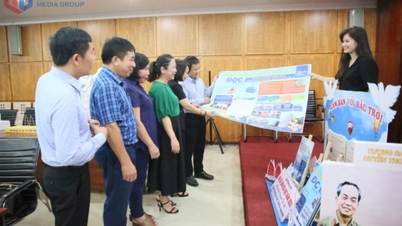





![[Photo] Prime Minister Pham Minh Chinh receives a bipartisan delegation of US House of Representatives](https://vphoto.vietnam.vn/thumb/1200x675/vietnam/resource/IMAGE/2025/5/28/468e61546b664d3f98dc75f6a3c2c880)



















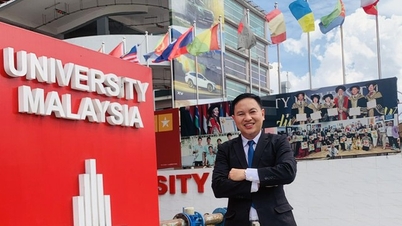








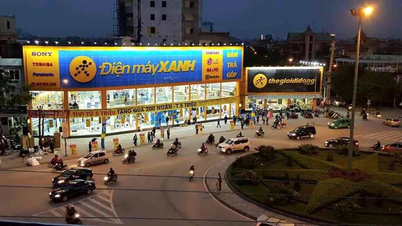
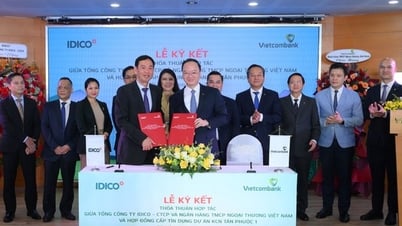





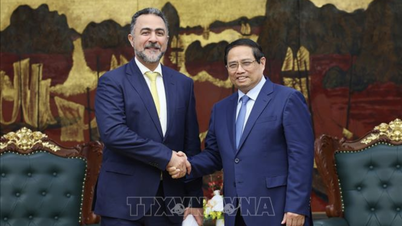










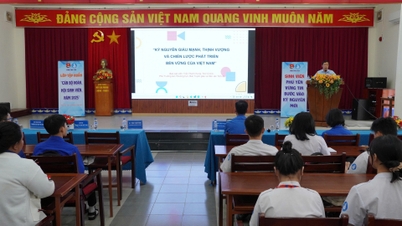












Comment (0)